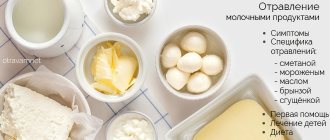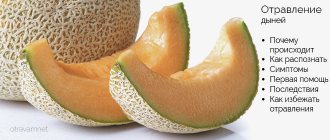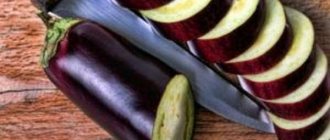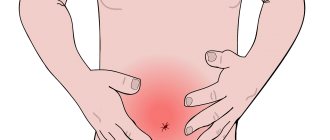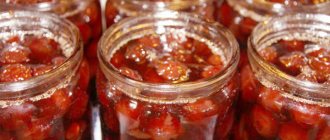Poisoning is understood as a disorder of the body’s functioning resulting from the ingestion of a toxin. Any substance of biological or synthetic origin that disrupts the functions of the body is considered a poison. Even at home, a person is not protected from the possibility of inhaling or consuming toxins through negligence. What should you be wary of to maintain your health?
Death from poisoning - what to fear?
At home, there are three main ways how poison gets to a person:
- Inhalation . This includes toxic substances that enter the respiratory system and then into the blood. The effect of such poisons on the body can manifest itself in different ways, but they are all volatile or gaseous compounds. Example sources: household chemicals used at home, less often volatile medications stored improperly.
- In direct contact with toxic substances, they penetrate deep into the tissue and cause local damage. With extensive lesions, toxins enter the systemic bloodstream, causing malfunction of many internal organs.
- Orally . Poison may enter the gastrointestinal tract due to food poisoning, drug overdose, or an accidental situation, for example, when a child ate household chemicals. Such conditions are extremely dangerous and destructive - toxins are absorbed from the intestines into the blood and have a detrimental effect on the entire body.
Health care
As a rule, medical care depends on the condition of the body and is individual in nature.
Activities are aimed primarily at cleansing from toxins and poisons:
- Diuretics, as well as laxatives and gastric lavage are prescribed.
- According to indications, restorative therapy is prescribed.
- Antidotes are introduced.
- If the skin itself is damaged, then measures are taken in accordance with the ongoing pathological processes.
Drug intoxication
You can get poisoned and die from medications, no one really argues with that. It is important to understand exactly how this happens and what to pay attention to so that fatal poisoning does not occur when using a regular home first aid kit or products prescribed by a doctor.
Overdose
Any medicine turns into poison if taken in large doses. For example, prescription drugs based on codeine (Codterpin, Cofex, Codeterp) are able to block the cough center and alleviate the patient’s condition with a debilitating dry cough. If the dosage of the medicine is exceeded, the process of blocking the cough reflex can turn into complete respiratory depression and dangerous suffocation.
Another example of poisoning is an overdose of antihypertensive drugs (Captopress, Berlipril). The result of taking the wrong doses will be a strong decrease in blood pressure, which will cause the person to lose consciousness and may even die.
Incompatibility of drugs
Incompatibility can be pharmacological or pharmaceutical . In the first case, when two drugs are taken simultaneously, effects that are incompatible with each other occur. In the second case, the danger lies in the reaction of the active ingredients of two different drugs. For example, when mixing two incompatible solutions in one syringe, you can get not two desired actions, but a completely different, third chemical compound.
An example of incompatibility would be the joint use of the following medications:
- popular home acetylsalicylic acid and calcium chloride,
- aminoglycosides and cephalosporin antibiotics,
- folic acid with steroid contraceptives,
- sleeping pills and alcohol.
The danger lies in the loss of the effect of one of the drugs or, on the contrary, its significant enhancement, even death.
Careful study of the instructions or strict adherence to the treatment regimen prescribed by the doctor will help prevent serious consequences of inappropriate use of medications.
Potentially dangerous drugs that are in every person's home medicine cabinet can be considered non-steroidal anti-inflammatory drugs (Aspirin, Diclofenac), antihypertensive and hypnotic drugs, antitussives and antihistamines. Salicylates and Ibuprofen in significant overdose lead to serious gastric ulcers and increase the risk of bleeding. Antihistamines of the first generations, as well as sleeping pills, have a depressant effect on the central nervous system.
Prevention
Measures that can protect against poisoning through the skin are quite simple:
- First of all, compliance with appropriate safety precautions.
- If work involves poisons or toxins, it is recommended to protect the skin with protective clothing.
- You should not stay near the suspected source of poisoning for a long time.
- After carrying out the proposed work, it is necessary to get rid of contaminated clothing and wash the entire body with clean running water, using certain hygiene products.
Food poisoning and death
Is it possible to die from food poisoning? Food can actually be deadly. There are two main points to consider here:
- About etching by the spoiled product itself or mold . A typical example is damage by mold, which actively develops in a humid environment. Some types of mold are deadly and cause serious damage to the respiratory and nervous systems. This also includes food intoxication after consuming toxic substances contained inside the product. For example, bitter cherry kernels are rich in hydrocyanic acid, and mushrooms are dangerous to eat due to the high concentration of toxins in poisonous species.
- Poisoning by an infectious agent that contaminates food . In this case, the problem most often concerns store-bought food products or those that have been kept in improper conditions. An example is spoiled canned food, where, if stored improperly, the deadly pathogen botulism freely multiplies. Another example of poisoning would be meat or eggs contaminated with salmonella, a bacterium that causes serious intestinal toxicity. In this case, death occurs from intoxication, as well as severe dehydration. You need to be as careful and attentive as possible with the following food products: meat, semi-finished products, fish from reservoirs of questionable quality, poorly washed or thermally untreated products. Shigella, staphylococcus, listeria, and E. coli are also dangerous pathogens.
Hydrocyanic acid
A colorless liquid with a characteristic odor of almonds is considered highly mobile and quite volatile and very poisonous. Contained in the seeds of some fruits, for example, almonds, apricots, cherries and others, in tobacco smoke, coke oven gas.
If there are more than 11 mg of hydrocyanic acid per 1 liter of air, then if safety precautions are not followed, toxic components may be absorbed by the skin and, accordingly, intoxication of the body may occur.
With an increase in air temperature, as well as an increase in physical activity, which implies increased sweating, the poisoning processes are activated.
The hidden period can last about one and a half hours.
Poisoning with hydrogen cyanide, as hydrocyanic acid is also called, causes suffocation (internal). The central nervous system is damaged. Characteristic symptoms of poisoning are expressed, as a rule, in the form of unpleasant dizziness, nausea, and painful vomiting. The situation is aggravated by dangerous convulsions and shock. If assistance is not provided in a timely manner, the outcome of this condition can be fatal.
Fatal alcohol intoxication
Alcoholism is a chronic mental illness in which tolerance to alcohol increases, withdrawal syndrome and toxic damage to organs develop. The main danger of poisoning arises from the ethanol content in alcoholic beverages.
Ethyl alcohol affects nerve cells in the brain. After the oxidation of ethanol, another toxic substance is formed in the body - acetaldehyde, which destroys the walls of blood vessels, liver and brain tissue. A fatal outcome is possible when the blood alcohol concentration is above 3-5 ppm.
Is it possible to die from alcohol poisoning? Despite the fact that the liver does its best to neutralize ethanol and remove it from the body, a lethal single dose is approximately 300 ml of 96% ethanol.
Preventive measures
To protect yourself from cancer intoxication, a person diagnosed with cancer must follow all doctor’s instructions. If surgery or another type of therapy has been recommended, do not be afraid and agree immediately. After all, the further the disease progresses, the higher the poisoning of the body with toxic substances released by malignant formations.
People with stage 4 cancer are exposed to cancer intoxication. The patient experiences severe physical pain. Deterioration in well-being affects a person’s psychological state. Properly selected treatment greatly improves the patient's situation.
Household chemicals threaten lives
Household chemicals can also cause fatal poisoning. Accidents due to negligence are more likely to occur with young children . Improper storage of household chemicals, as well as bright pictures and beautiful packaging attract children's attention to such products and increase the likelihood of testing the product for taste. If a child has eaten, for example, washing powder, a serious burn to the mucous membrane of the esophagus and stomach is possible. Symptoms of intoxication include vomiting, dizziness, and severe abdominal pain.
Frequent use of cleaning products, especially those with harsh chemical ingredients and odors, can cause a gradual accumulation of toxins in the body. This also includes cosmetics, for example, the constant use of hairspray or hair dyes by hairdressers.
General symptoms
Regardless of how the poison entered the body, general symptoms are observed during intoxication with chemicals:
- dysfunction of the central nervous system;
- heart problems up to cardiac arrest;
- anaphylactic or toxic shock;
- loss of consciousness (sometimes coma);
- liver or kidney failure;
- pancreatitis;
- destruction of red cells (erythrocytes) and anemia.
If such symptoms are present, failure to provide first aid for chemical poisoning will lead to a sad outcome.
Diagnostics
Basically, cancer intoxication occurs when the patient already knows his own diagnosis. But with the active development and growth of a cancerous tumor, poisoning occurs at stages 3 or 4 of oncology.
For diagnosis, computed tomography and magnetic resonance imaging, scintigraphy, ultrasound and positron emission tomography are used. Laboratory testing includes a biopsy of cancer cells, a common blood and urine test, and an additional detailed analysis is done.
Types of reasons
- acute alcohol intoxication;
- chronic alcohol intoxication.
Acute form
Acute alcohol intoxication is usually diagnosed in people who do not regularly drink alcoholic beverages. It manifests itself as euphoria, impaired coordination of movements, and impaired attention.
Nausea and vomiting may occur. These signs of alcohol poisoning can be eliminated by taking aspirin and diuretics.
It is also important to drink more fluids. People often resort to traditional medicine - drink brine or kefir.
It is not recommended to do this, as it can only worsen your condition.
Chronic form
Last days of the patient
The last days of life are usually spent at home. Such patients are not kept in medical institutions. For home treatment, large doses of sedatives and painkillers are prescribed. But the effect of drugs is usually short-lived.
Therefore, the patient is recommended to have long sleep and rest. During sleep, the pain is slightly dulled, giving rest to the exhausted body.
The presence of relatives and friends alleviates the condition of the dying person. Caring reduces suffering by providing some relief.
Any form of intoxication is accompanied by unpleasant symptoms and can lead to various complications. But not everyone knows what cancer intoxication is.
Poisoning of the body occurs in cancer patients due to the breakdown of products of malignant formation. This condition is typical for late stages of cancer. Doctors say that this is a pattern and a consequence of active anti-cancer therapy.
Eating hot dogs for a while
Such competitions have been known for quite a long time and they still exist. The whole point of them is that several participants must eat as many hot dogs as possible for a while, thereby getting ahead of their rivals.
Hotdogs. Illustrative photo: Pexels: UGC
Unfortunately, this often ends in trouble: people die from suffocation and other reasons during the competition. However, many people are even now ready to challenge themselves in “speed eating”, putting not only the prize at stake, but also their lives.
Diagnostics
Diagnosis is based on medical history, patient complaints, medical examination and laboratory results. The fundamental factor for diagnosing cancer intoxication is the presence of a malignant tumor.
If a characteristic clinical picture is present, the patient is prescribed a set of diagnostic examinations, which includes:
- general blood analysis;
- general urine analysis;
- blood chemistry;
- blood for tumor markers;
- fluorography;
- bone scintigraphy;
- Ultrasound of the abdominal cavity and pelvis;
- ECG;
- examination by a gynecologist.
Depending on the clinical picture, additional examination may be prescribed; the plan is determined on an individual basis.
When a diagnosis of oncology is established, an assessment of cancer intoxication is required in order to determine treatment tactics and make a decision on surgical intervention.
Sannakchi or "live octopus on a plate"
In Korea, a popular dish is made from “live” shellfish, which local chefs cut into pieces and serve with sesame seeds and sesame oil.
Sannakchi. Illustrative photo: Flickr: UGC
As a result, everything looks as if the octopus is really moving: in reality, this effect is achieved due to the contraction of its muscles.
Unlike Fugu, there are no toxins in Sannakchi. But there is another danger: a “moving” piece can block the air supply and cause death. Unfortunately, such cases have already been recorded.

